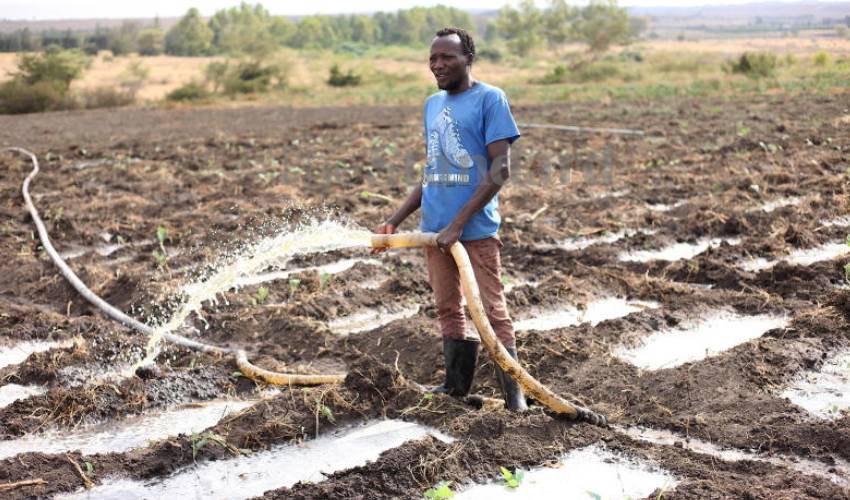×
The Standard e-Paper
Fearless, Trusted News

Caleb Wesonga, a farmer at Muthwani in Kamulu, irrigates his farm. [Wilberforce Okwiri, Standard]
Thousands of residents from Nairobi, Machakos and Kiambu are feeding on fresh farm produce irrigated by water which is contaminated with industrial chemicals and sewage.